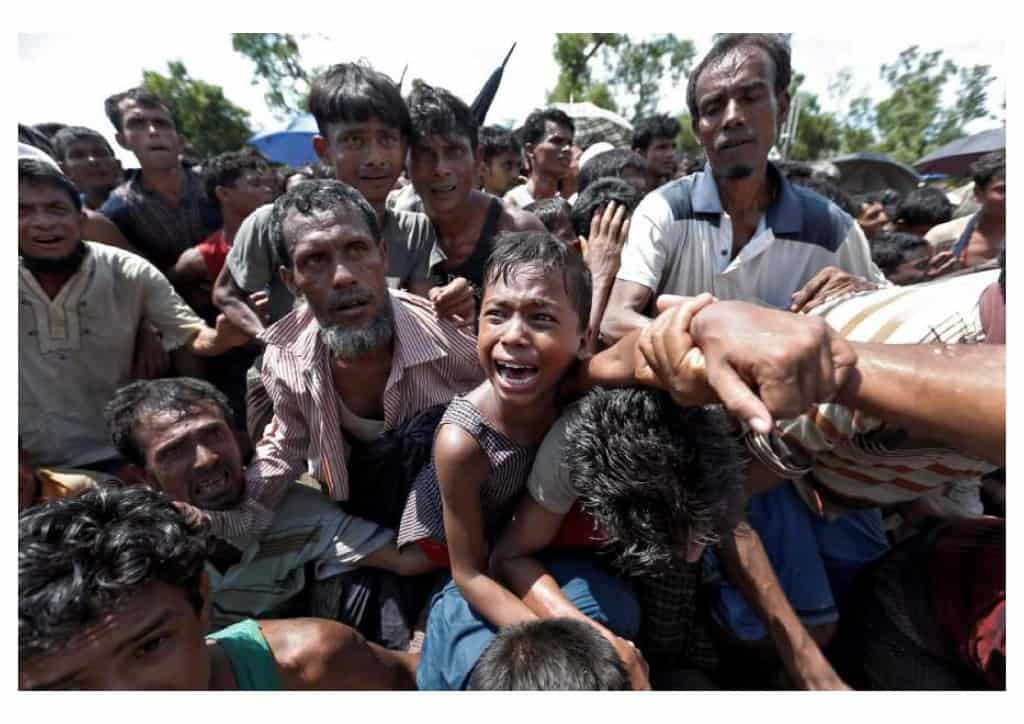
Humanitarian (Subclass 201) visa or In Country Special Humanitarian Class XB Subclass 201 visa: Who can apply for this visa?
If you are in your own home country and you are being persecuted for 1 of the following reasons, you may be able to apply for a Humanitarian (Subclass 201) visa:
- your religion; or
- your political opinion, real or imputed; or
- your race; or
- your nationality; or
- your membership of a particular social group
Australian humanitarian program consists of onshore (in Australia) obligations under the UN 1951 Refugee Convention or Onshore Protection Class XA Subclass 866 visa, and Offshore (outside of Australia) Class XB visa program, that is, Subclass 200 to 204.
There is no requirement for you to be registered as a refugee by UNHCR or government authorities in your present country in order to apply for Humanitarian (Subclass 201) visa. However, it is preferable to be registered by UNHCR to ensure you are offered the necessary protection and care.
You must be in your own country to apply for the Humanitarian (Subclass 201) visa.
To apply for this visa, you can lodge an application form and provide your address. You can also apply through the Community Proposal Pilot or Community Support Program using a CSP form which is completed by the approved proposing organisation.
There is no visa application fee or charge unless you have been proposed by an approved organisation and application for the Humanitarian (Subclass 201) visa is lodged using CSP form – second stage visa application fee is payable.
You will not be eligible to apply for Humanitarian (Subclass 201) visa if any of the below apply to you:
- between 13 August 2012 and 31 May 2013, you entered Australia at an excised offshore place and became an unlawful non-citizen; or
- on or after 13 August 2012, you were taken to a place outside Australia (under section 245F(9) of the Migration Act 1958); or
- on or after 1 June 2013, you came to Australia by boat or as an Illegal Maritime Arrival (IMA).
When you applied for Humanitarian (Subclass 201) visa, the Department of Immigration (Department of Home Affairs) will also consider for all the other Class XB visas, that is, Subclass 200, Subclass 202, Subclass 203 and Subclass 204.
You can include members of your family unit in a combined application. However, the Minister must invite you to an application for the Humanitarian (Subclass 201) visa if there are compelling reasons and you are certified as being a part of a class of persons, and at risk of harm.
In addressing whether there are compelling reasons to grant you the visa, the Department of Immigration will consider:
- the degree of discrimination or persecution to which you are subject in your home country – you will not be compared to other applicants;
- the extent of your connection to Australia compared to link with other countries;
- whether or not there is any other suitable country that can provide you with resettlement;
- the capacity of the Australian community or your proposer to assist you with resettlement;
- whether you have been offered resettlement in another country or you have permanent residency or protection in another country; and
- whether you have a right to obtain residence in another country.
Usually you will be interviewed to, among others, establish your identity, verify your family relationship or to substantiate your claim of persecution or substantial discrimination.
If your application is refused, you will be given a written notice. However, there is no obligation to provide you with reason for refusing your In Country Humanitarian (Subclass 201) visa application. You will not have a right to have the decision reviewed by the Australian AAT (Administrative Appeals Tribunal). You may apply to the Australian court for judicial review if the decision was not made according to Australian law.
Humanitarian (Subclass 201) is a permanent visa and is valid for 5 years from the date of grant (click here to learn more about RRV 155 visa). If you do not have a passport to travel to Australia for resettlement, you will be issued with an Australian Migration Status (AMS) ImmiCard to allow you to enter Australia. Once you are in Australia, you may apply for a Convention travel document or titre de voyage or a certificate of identity.
Australian migration law is complex and difficult to understand, contact our immigration lawyer for a consultation (fee applies) to help you decide if you are eligible for an In Country Humanitarian (Subclass 201) visa (click here to find out how an immigration lawyer or registered migration agent can help you) or click here to learn more about offshore refugee visas. You may also refer to our FAQs for answers regarding visa application or visa cancellation by clicking here. Click here to search for other visa.


041 222 4020 or WeChat: AUDvisa
This article is not intended to be or taken as migration legal advice. The author of this article disclaims any liability for any action or omission on the information provided or not provided in this article. You should always consult an immigration lawyer or a registered migration agent to form an informed opinion on your immigration matter.



